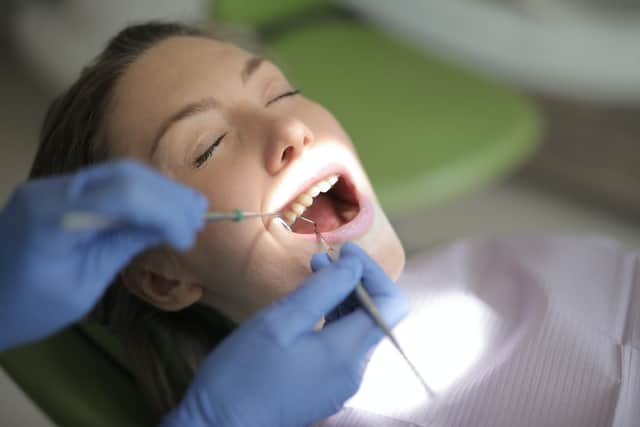Sweet treats during lockdown blamed for difficulty getting to see an NHS dentist in Lancashire now
and live on Freeview channel 276
Michael Green, Lancashire County Council’s cabinet member for health and wellbeing, told a recent meeting of the Conservative-run authority that the fallout had put pressure on dentist capacity. He was speaking during a debate on the challenges facing dentistry – and the people in need of it.
County Cllr Green said that dental services were also “living with the consequences” of the fact that dentists had not been required to operate at their full contractual level between the start of the pandemic in early 2020 and July 2022, because of the precautions that had to be put in place to protect patents and staff.
Advertisement
Hide AdAdvertisement
Hide Ad“The reduction in service provision, alongside an increase in sugar consumption by many – particularly during the pandemic – has resulted in patients presenting to dental practices with an increased disease burden…[and] requiring multiple appointments to make them orally fit.


“That results in dental practices being able to see fewer patients for the same number appointments they traditionally offered,” County Cllr Green said.
The meeting heard that the Lancashire and South Cumbria Integrated Care Board (ICB) had recently launched an improvement plan, which will focus on those areas with the greatest need for dental access and oral health support.
However, Labour opposition member Lizzi Collinge rejected the idea that the problems had their roots solely in the pandemic.
Advertisement
Hide AdAdvertisement
Hide AdShe said that she recently met a man while out campaigning who had “lost most of his teeth because he couldn’t get access to a dentist”.
“He’d needed treatment for years – our dental services are broken,” said County Cllr Collinge.
The Labour group had brought a motion calling on County Hall to write to the government asking, amongst other things, for urgent intervention to ensure dental provision was in place for all Lancashire residents.
The call was amended by the ruling Tory group – with the main change being to remove a demand to provide access to NHS dentistry for those who cannot afford private dental care.
Advertisement
Hide AdAdvertisement
Hide AdLiberal Democrat John Potter said that stipulation was a deal-breaker for him – not least because of the number of people being driven to doing “DIY dental treatment” or forced to stay off work because of pain. He added that NHS access was vital because of “extremely worrying trends” of people in Lancashire no longer visiting a dentist.
County Cllr Potter said that stats showed four in ten Lancashire residents had not had a dental appointment over the past two years and that the proportion of children getting dental check-ups had fallen from 63 percent in 2018 to 47 percent now.
However, Conservative cabinet member for adult services, Graham Gooch, said one of the biggest issues was that the dentists providing NHS services were almost all private providers – and so could refuse to sign up to government contracts if they chose.
To that end, he said that the ICB was “in a better place” to improve the situation locally, because it could engage directly with dental providers across Lancashire.
Advertisement
Hide AdAdvertisement
Hide AdHe added that a warning from the chair of British Dental Association in Wales that there is “a very real possibility that NHS dentistry as we know it will not exist in one to two years” was an “appalling” state of affairs.
There are 202 primary care dental practices offering NHS services across Lancashire and South Cumbria and, recently, an additional 490 appointments per week have been commissioned at urgent care facilities in the region, the meeting heard.
Labour voted against the changes made to its amendment in the chamber, but the altered version was carried by a majority.